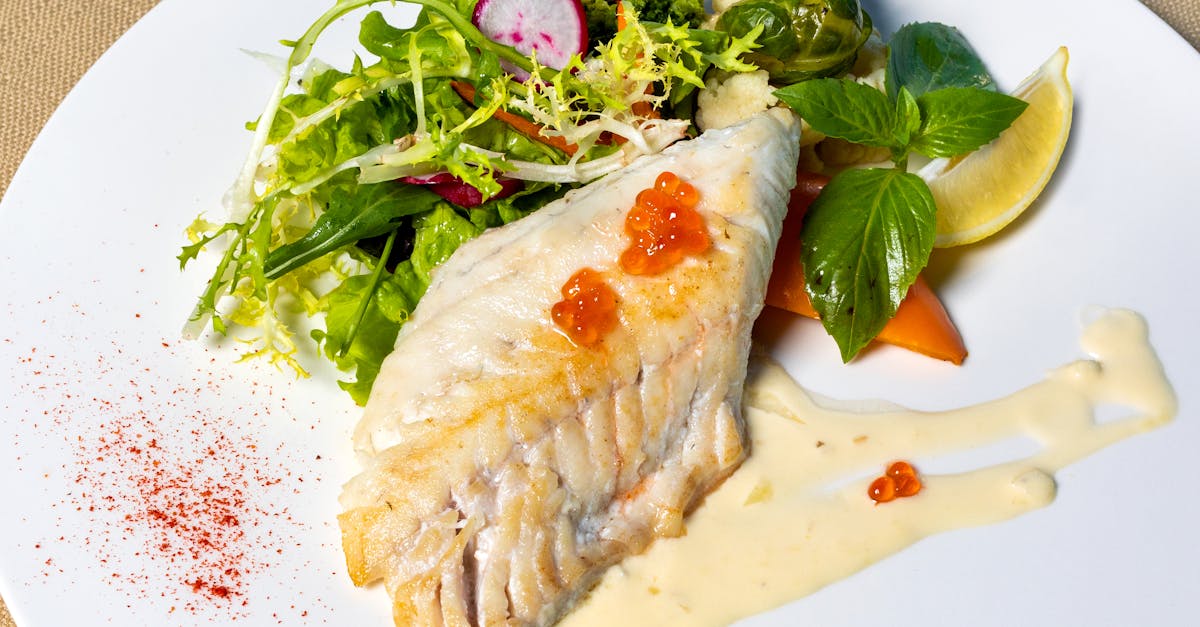How to ensure responsible fishing practices for frozen haddock filletUsing a baking tray lined with parchment paper can enhance the cooking process by preventing sticking and facilitating an easy clean-up. For those who prefer a slightly crispy exterior, switching to the grill function for the last few minutes of cooking can yield a delightful finish. This method provides a nice contrast to the tender flesh of the haddock, making for an appealing dish.
Baking Time for Perfectly Cooked Haddock Baking frozen haddock fillet requires careful attention to time to achieve the ideal texture. Generally, a fillet weighing around 170 grams will take approximately 15 to 20 minutes at a temperature of 200°C (about 400°F). Thinner pieces may require slightly less time, while thicker cuts will need a few extra minutes. It's crucial to ensure that the fish is cooked through but remains moist and flaky, avoiding the common pitfall of overcooking. An effective way to determine when your haddock is perfectly baked is by checking its internal temperature. Using a food thermometer can help reach the ideal temperature of 63°C (145°F). Additionally, you can use visual cues; the flesh should appear opaque and easily flake apart when tested with a fork. Adapting your approach based on the specific fillet size and your oven's performance will help in achieving a delicious result. How to Gauge Cooking Duration
tributing to the long-term viability of fish populations and their ecosystems.A simple marinade can include olive oil, lemon juice, garlic, and herbs like parsley or dill. Mix these ingredients and allow the fillets to marinate for about 30 minutes before baking.
Raising awareness about the impact of overfishing and destructive fishing methods is essential for fostering educated consumers. Campaigns and initiatives can engage the public in discussions surrounding the benefits of sustainable choices. Educational resources, community workshops, and social media platforms serve as effective tools for spreading knowledge about responsible consumption. As consumers become more informed, they are more likely to make conscientious decisions that not only enhance their own dining experience but also protect marine environments.How can I tell when the haddock is fully cooked?
Supporting Local Fishing CommunitiesHaddock is fully cooked when it flakes easily with a fork and reaches an internal temperature of 63°C (145°F). Use a food thermometer for the most accurate reading.
Local fishing communities play a crucial role in promoting sustainable practices. They often possess invaluable knowledge about their regional ecosystems and fishing methods passed down through generations. Supporting these communities helps ensure that traditional fishing practices remain viable while fostering a deeper connection between the people and the waters they depend on.
Investment in local fisheries can also bolster economies, ensuring that the benefits of fishing extend beyond large corporations. When communities thrive, they can implement better management practices that align with conservation goals. This not only enhances the social fabric but also promotes environmental stewardship, ensuring that the fishing industry contributes positively to both people and nature.
The Economic Impact of Responsible FishingRelated Links
Responsible fishing practices create a foundation for economic stability within coastal communities. Sustainable methods ensure that fish populations remain healthy, allowing for long-term fishing opportunities. This approach directly benefits local businesses reliant on seafood, including restaurants, markets, and processing plants. Consequently, jobs are preserved and created, contributing to overall economic growth within these regions.How to grill frozen haddock fillet for a smoky flavour
Investment in responsible fishing also attracts tourism, focusing on eco-friendly practices that appeal to environmentally conscious consumers. Tourists often seek experiences that align with their values, creating additional revenue streams for local fishermen and their communities. Additionally, promoting sustainable seafood products can open new markets, fostering a greater awareness of the importance of environmental stewardship in economic development.Roundup of cooking methods for frozen haddock fillet
FAQSReview of the best frozen haddock fillet brands
What are responsible fishing practices?10 best recipes for cooking frozen haddock fillet
Responsible fishing practices involve methods that ensure fish populations remain sustainable, protect marine ecosystems, and minimise environmental impact while supporting local fishing communities.Historical significance of haddock in British cuisine
Why is it important to promote ocean health in fishing?Why you should try poaching frozen haddock fillet
Promoting ocean health is crucial because healthy oceans support diverse marine life, provide livelihoods for fishing communities, and maintain the balance of marine ecosystems, which is essential for the overall health of the planet.What to serve with poached frozen haddock fillet
How can consumers make sustainable choices when purchasing frozen haddock fillet?
Consumers can make sustainable choices by looking for certifications such as MSC (Marine Stewardship Council) or ASC (Aquaculture Stewardship Council), which indicate that the fish has been sourced from responsible fishing practices.
What role do local fishing communities play in responsible fishing?
Local fishing communities play a vital role by employing sustainable practices, preserving traditional knowledge, and supporting local economies, which in turn helps maintain the health of fish populations and marine ecosystems.
How does responsible fishing impact the economy?
Responsible fishing can positively impact the economy by ensuring the long-term viability of fish stocks, which leads to stable income for fishermen, promotes tourism, and supports related industries, ultimately benefiting local and national economies.
Related Links
How to evaluate the impact of frozen haddock fishing on local ecosystemsRoundup of the latest research on haddock migration patterns
10 tips for sourcing sustainable frozen haddock fillet
Review of the best certifications for sustainable frozen haddock
Why should consumers care about migration patterns of haddock
Historical analysis of haddock fishing and its ecological impact